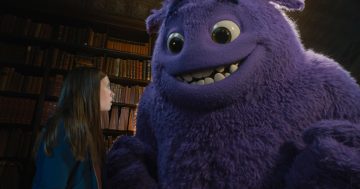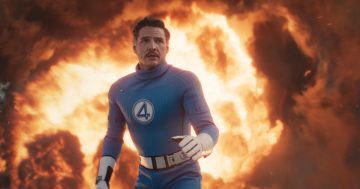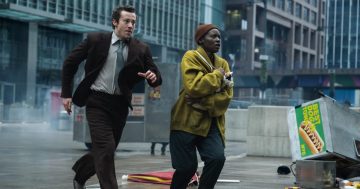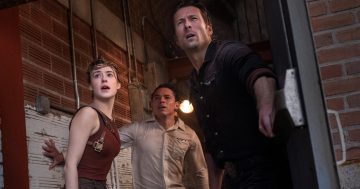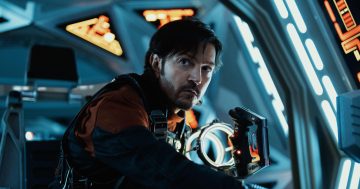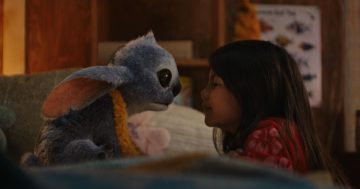
Kingdom of the Planet Apes is the latest film in the nearly 60-year-old franchise. Photo: 20th Century Fox.
Planet of the Apes is amongst the most influential, quoted and parodied films of all time, and for good reason.
It was one of the world’s first tastes of sci-fi on the big screen and now, 56 years on, a couple of reboots and 10 films later we get Kingdom of The Planet of the Apes.
Kingdom serves as the fourth film in the rebooted franchise which started with Rise of the Planet of the Apes in 2011 and is the first of the series not to have the great ape Caesar as its lead.
Three hundred years on from the end of the previous film, Caesar and his legacy have been tainted. Apes have splintered off into factions. Some still worship Caesar, others have tainted his teaching, while some are completely oblivious to who he was.
In Kingdom, we follow Noa who is part of a tribe that has forgotten about Caesar. After a raid by another clan, his family is enslaved and Noa must begin to learn the truth about the downfall of man and the rise of apes and Caesar’s part in all of it.
The PotA reboot trilogy is fantastic. All three are underrated in my opinion, and going into Kingdom I was a little nervous about how those movies would be treated with this one being set 300 years later.
For the most part, Kingdom does a solid job at honouring the previous three films while paving its own story however, I do have a couple of frustrations.
I’ll start with the good.
The film looks incredible. It proves that in the 2020s, a Disney-backed movie can still look top-notch.
Honestly, it’s the best-looking movie since Avatar 2: The Way of Water. The motion capture of the actors is at an all-time best and the use of on-location filming helps the world feel lived in and not just a slide from a PowerPoint presentation.
The characters are also fantastic. Noa is a great protagonist for this film and its planned sequel. He feels oddly relatable and is the POV character for those who haven’t seen the previous films. As he learns about Caesar, so does the audience.
The film’s antagonist, Proxima Caesar, is in my top two villains of the year. He has assumed the role of the ape’s former leader and his anger and motivations are vicious yet understandable. While watching, I reasoned with his intentions while not agreeing with his methods. This makes for an awesome character and the best kind of villain.
I would have liked to see more from Raka, a prophet of Caesar. He was the comedic backbone of the movie and provided a lot of context to the world, something the film could have used just a tad more of.
Now on to what I didn’t love, and it’s quite simple. The humans.
The first three film’s entire plot circled on the fall of man and the rise of apes. In Kingdom, there is a plot I don’t want to spoil but it’s about humans and I feel as if it undoes what the previous movies concluded.
At the start of the film, the remaining humans are depicted as pests. They can’t speak and they aren’t intelligent. I thought this was a really interesting role reversal. Unfortunately, as the film continues and we learn more about the remaining humans, the less I enjoyed this plot thread.
The movie is called Planet of the Apes, not Planet of the Humans. Poor human characters plague movie franchises like Transformers, Jurrasic Park and Terminator. The best parts of these movies aren’t the humans, it’s the mythical creatures that we can’t see in real life, hence the reason we love seeing them on the big screen.
A slight nitpick I also have is, I would have liked to see more of Noa learning about Caesar. There’s a decision Noa makes in the film that is fueled by what he learns about Caesar, but the lack of seeing him learn on screen makes the eventual decision feel a bit undeserved.
All in all, Kingdom of the Planet of the Apes is a solid movie. I enjoyed my time with it a lot and while not as good as the two of the three movies that came before it, I do think it is an interesting follow-up.
Kingdom of the Planet of the Apes is now playing at cinemas across the country.
Original Article published by Jarryd Rowley on Riotact.


